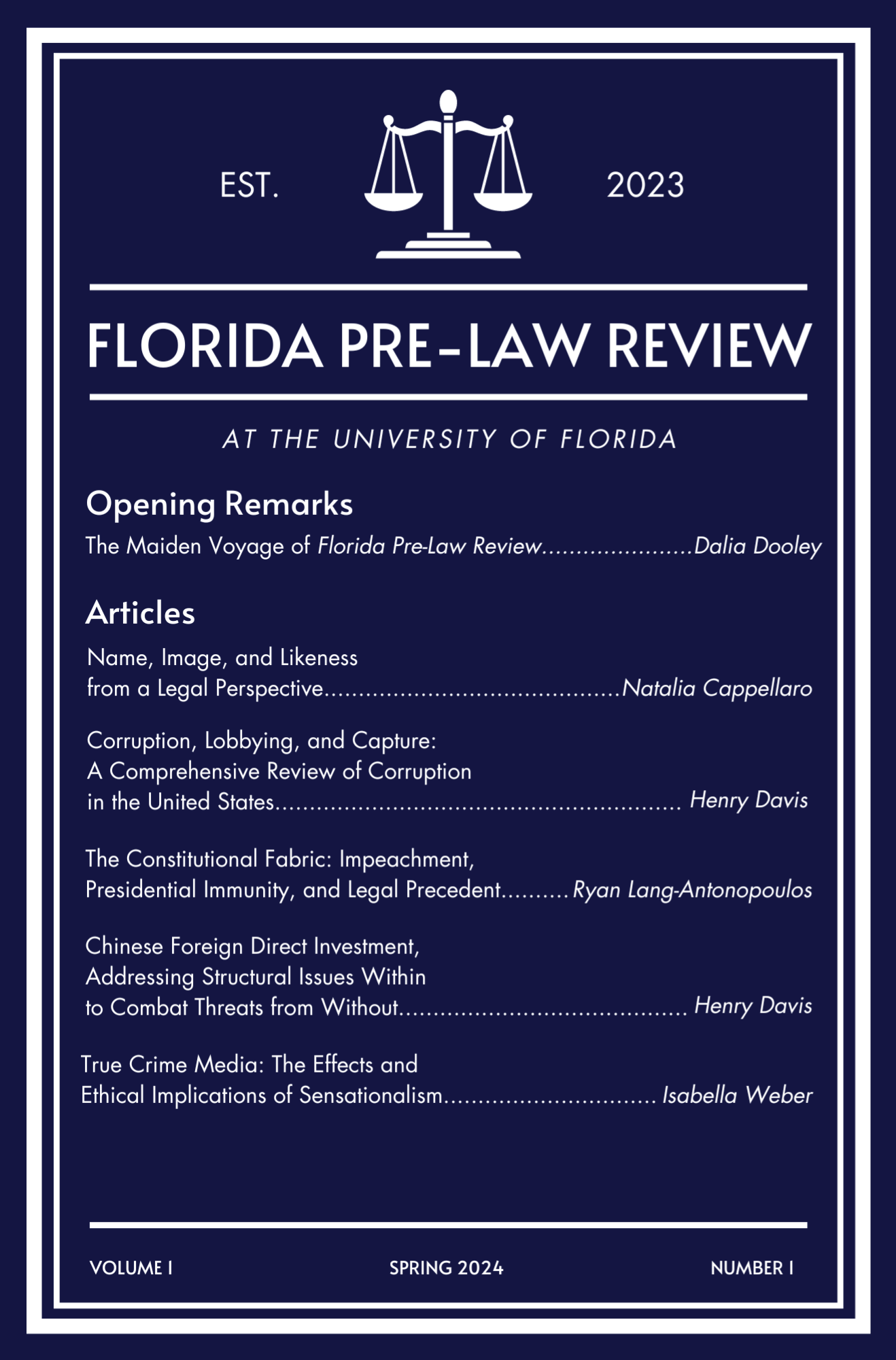True Crime Media
The Effects and Ethical Implications of Sensationalism
Keywords:
True Crime, Media Law, LawAbstract
The true crime genre has become increasingly popular, depicting real crime stories through media such as television shows, documentaries, and podcasts. While true crime media can bring awareness towards certain cases and help in delivering justice, the genre raises significant ethical concerns when these stories are presented in a sensationalized manner, prioritizing emotionally charged content over accurate reporting of facts. This paper explores the ethical concerns raised by sensationalized true crime media for its lack of required consent may lead to violations of victims’ rights, exploitation of vulnerability, and reinforcement of negative stereotypes. These ethical dilemmas are also discussed in the context of their legal implications as consumers of true crime media can develop unrealistic perceptions of crime and the justice system, affecting their judgment and decision making as potential jurors. This paper highlights the need for recognition of the significant effects of true crime media on viewers, victims, and the criminal justice system as a whole while considering the implications of real case stories being presented in a dramatized fashion using sensationalist tactics.


